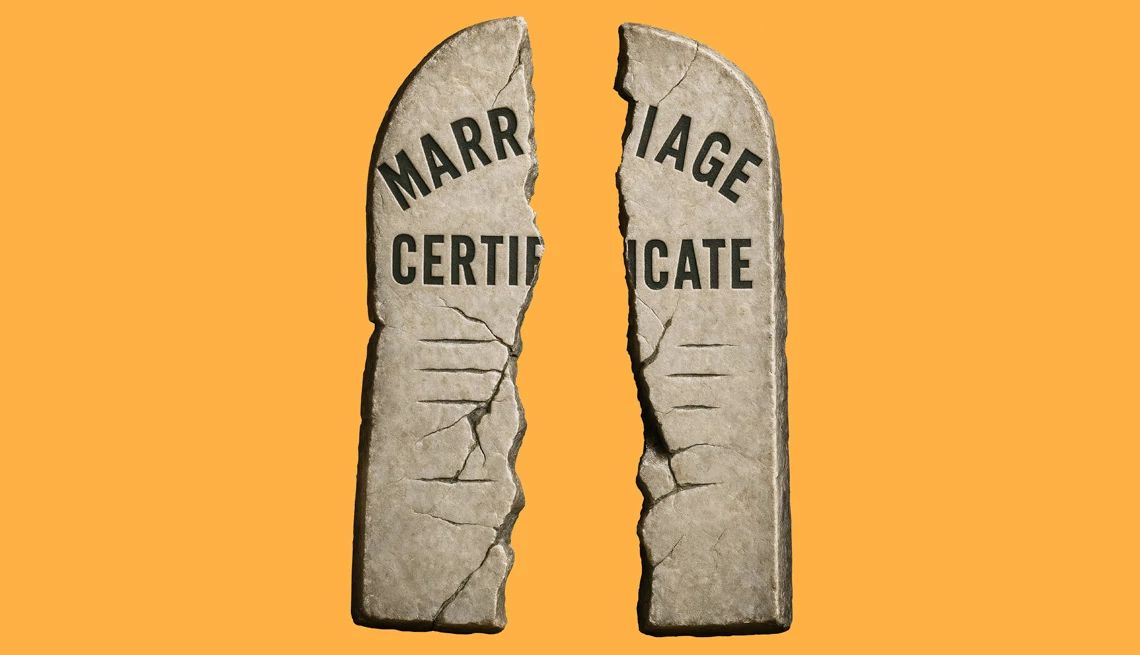
The 10 commandments of a late-life divorce | members only
- Select a language for the TTS:
- UK English Female
- UK English Male
- US English Female
- US English Male
- Australian Female
- Australian Male
- Language selected: (auto detect) - EN
Play all audios:

4. THOU SHALT SHARE THE FRUITS OF THY LABOR. Along with the house, workplace retirement plans are typically a couple’s most valuable holding. And, like the home, they tend to elicit strong
emotions, particularly from the spouse whose name is on the account. By law, though, both spouses are entitled to a share of retirement assets earned during the marriage, based on state
guidelines and, in the case of pensions, each plan’s rules. Adding to the complexity of pensions: whether the plan includes additional benefits such as health insurance and whether the
account holder is already receiving payments. The couple usually has the option to divide benefits, put a lump-sum current value on the pension and split that, or have the account holder buy
out the ex. To execute the division, you typically need a special document called a qualified domestic relations order (QDRO) issued by a court or state agency. Government and military
pensions have different mechanisms for splitting. 5. KNOWETH THAT NOT ALL ASSETS ARE CREATED EQUAL. In negotiating, be mindful of how taxes can affect the value of different assets to make
sure one spouse isn’t shortchanged. For example, a savings account with a $100,000 balance is worth more than a traditional IRA with $100,000 in it because withdrawals from the retirement
account are taxable and may be subject to an early withdrawal penalty. “Each spouse should talk to a financial adviser who didn’t work with them as a couple as well as a tax professional to
assess tax impact before any decisions are finalized,” says attorney David Horowitz, cochair of the Mediation Committee of the American Academy of Matrimonial Lawyers. 6. THOU SHALL NOT
COUNT ON THY EX’S FINANCIAL HELP. Expecting to get — or pay — spousal support for many years to come? Think again. “Lifetime alimony has gone the way of the dinosaur,” Hetrick says. While
the specifics differ by state, alimony is now typically designed to last just long enough to give a lower-earning spouse some time to figure out how to make it on their own. A lower earner
may also qualify for higher Social Security benefits based on the ex’s work record once he or she is eligible to claim, as long as the couple were married at least 10 years; the lower
earner’s share of the higher earner’s benefit would be greater than what they would otherwise qualify for; and the lower earner isn’t remarried. The higher earner’s benefits aren’t affected.
7. HONOR AND PROTECT THY CHILDREN. If your kids are younger than 18 or haven’t graduated from high school, how much you pay or receive in child support will be determined by a state formula
that takes into account each parent’s income and your custody arrangement. In a few places, the age limit is higher, typically between 21 and 23. Most states make exceptions for an adult
child with special needs.
